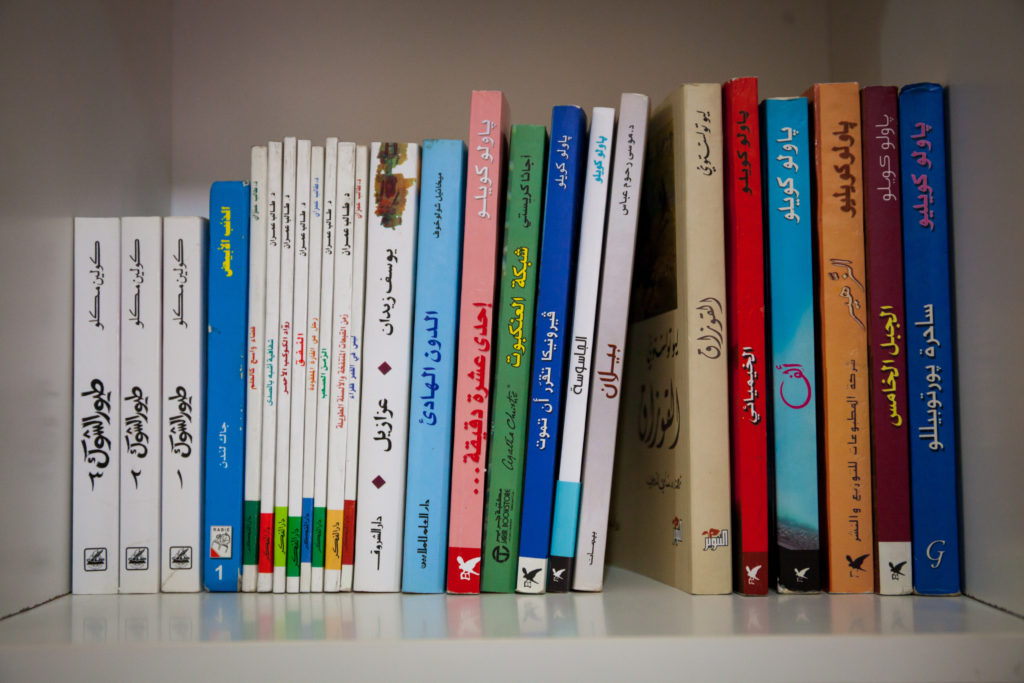
2012
“Women Now For Development “SFD” (Previously Soriyat For Development) is a Syrian non-governmental organization, which was established on June 23rd, 2012 in Paris, France by Samar Yazbek, a Syrian writer and journalist.
Women Now For Development “SFD” began in 2012 by launching a series of small projects that supported ten families. The idea of SFD was born in Northern Syria during a time of chaos and war, well before it was founded in France. Samar Yazbek created Women Now after meeting and working with various women’s groups inside Syria. Through her discussions with these groups, Yazbek saw the dire need to support their missions, which focus on empowering Syrian women.
2013
In our second year, we supported a number of different projects in various regions across Syria, principally in Ghouta, Idleb and Aleppo.
Seventeen micro-projects were launched to support single mothers who are now solely responsible for providing for their families. These single mothers are now able to provide for their families because of the skills and personal development they gained through these projects. By teaching women skills they can use in their everyday lives, these micro-projects went further than just delivering humanitarian aid.
Other projects were dedicated to supporting and protecting children. Through these projects children were given access to education and psychosocial support to protect them from the consequences of war. More than 830 children benefited from four educational projects. 160 young women were able to obtain a high school diploma, computer skills, or began studying a foreign language.
2014
In this year, Women Now launched a new idea, which would change the face of the organisation: the Women Now Center For Women’s Empowerment. We started with four centers in Syria and Lebanon, assisting 600 women per month. The centers provide training, psycho-social support, and cultural events for the women.
Despite the difficult and complex situation inside Syria, our teams continued to ensure the centers would run so they could provide activities and support the beneficiaries. The dedication of our teams in Syria and its neighboring countries allowed us to support the women, to reinforce their knowledge and skills and to further their personal development. SFD succeeded in gaining support for its projects from the local population by acting progressively so not to shock them.
2014 also marked the beginning of an important partnership with Hurass Network for Child Protection. Together, we implemented child protection policies in the Women Now Centers.
2015
2015 was a very successful year for Women Now: numerous trainings were held, new centers were opened and the team grew both inside Syria and Lebanon. Thanks to the registration of Women Now in Turkey, a new office was established there responsible for projects and representing the organisation. At the end of 2015, the team of Women Now consists of 106 women and 9 men working in 8 Women Now centers in Syria and Lebanon and offices in France and Turkey.
Thanks to capacity building in the form of a organizational development workshop for some of the team, Women Now has refined its vision, mission and objectives and drafted its strategy for 3 years and the theory of change. We aim to approach all activities with a holistic approach which honors our values and treats women as subjects of their own lives.
2016
In the year of 2016, our five Women Now centers located in Syria saw growth in all areas. In numbers, we witnessed an increase in women and girls beneficiaries, programs and activities, and employment opportunities found by women who received their graduation certificates. And in emotions, Women Now watched relationships develop between Syrian women, amongst staff members, and everywhere in between.
In Lebanon both centers provide women with the tools necessary to earn an income, to understand their rights as women, and to build agency and confidence by connecting with the political and social world that surrounds them. Circumstances of displacement make it especially difficult for women to gain these tools and skills.
